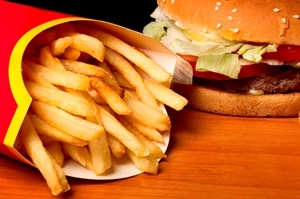How often do healthcare staffing specialists dine out? It turns out that grabbing a meal outside the kitchen may lead to consuming larger meal portions, according to new research.
The University of Illinois at Chicago study found that people who eat out consume an average of about 200 calories more a day than when they cook at home. They also consume foods with more saturated fat, sugar and salt.
The research underlines how eating out at restaurants should be the exception, and making home-cooked meals should be the norm.
When travel nursing and travel physical therapy professionals are working in a new location, it can be easy to forgo home cooking and simply grab a bite to eat. But, according to the study, they might want to reconsider.
Lisa Powell, study co-author a professor of health policy and administration at UIC, said researchers based their findings on responses of more than 12,000 people ages 20 to 64 who responded to federal surveys from 2003 to 2010. The participants answered questions about what meals they ate over two separate days.
Those who ate at fast-food spots or full-service restaurants not only took in an average of 184 and 205 extra calories per day, respectively, they also consumed more saturated fat (3 and 2.5 grams extra, respectively) and salt (296 and 451 milligrams, respectively).
"We always underestimate large portions, so people don't realize that restaurant portions are as excessive as they are," Lisa told HealthDay. "This is why we need menu labeling on all restaurant meals, not just the fast-food and larger chains."
Powell said she and her colleagues are trying to better grasp the role restaurants have on people's diet. She explained they know the rise of the obesity epidemic coincides with the rise in number of people dining on the road. On average, people take in about 600 calories a day from restaurants.
The study had its drawbacks. It didn't mention anything about whether frequent restaurant diners are unhealthier than at-home eaters.
Worsening eating habits
With that being said, the UIC study adds to a much larger body of research that has analyzed health habits based on away-from-home foods. A panel funded by the Food and Drug Administration, the Keystone Forum, found the average American now eats more than four meals a week that are prepared away from home.
In the thick of things lurks the fast food industry, which has been a detriment to people's eating habits for decades. According to the Pew Research Center, when diners eat at a fast-food restaurant they consume nearly 40 percent of their daily calories, about 43 percent of their daily carbohydrates and 33 percent of daily fat.
From 1977 to 1978, people got about 18 percent of their daily calories from these kinds of foods – now that percentage has doubled. It's worth pointing out that both food and drink factors into this increase. Gulping down a 32-ounce soft drink can add as many as 720 calories to the daily total.
Eating right
So, how do healthcare staffing professionals – who should set a precedent of good eating habits – consume the right amount when dining out?
Powell suggests ordering a half portion and if the meal offers a choice of sides, opt for salads and vegetables rather than fried items. See if you can get the dressing or sauce on the side, and steer clear of soda – water is much better option.

